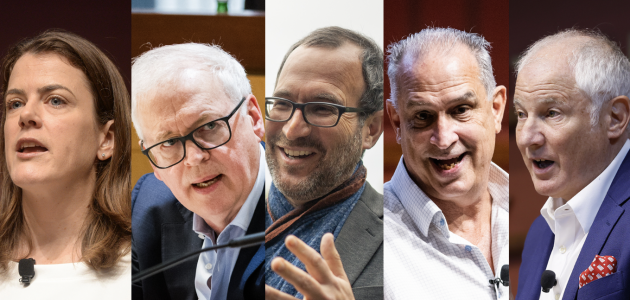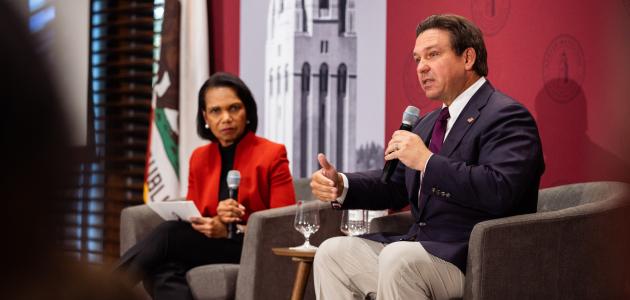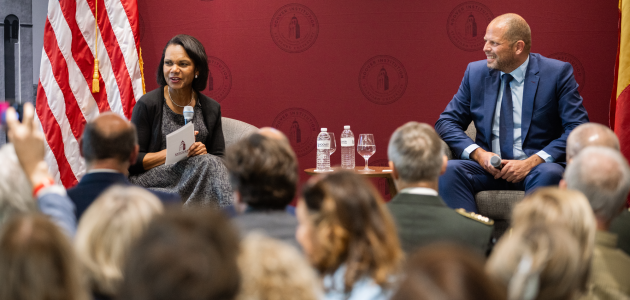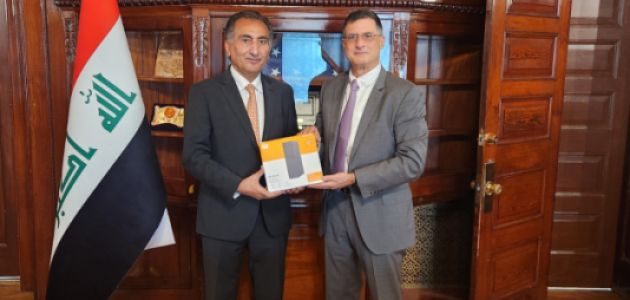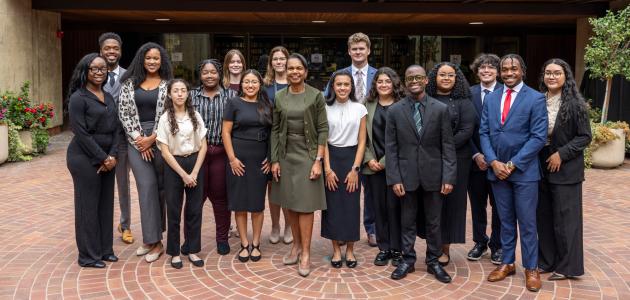On May 18, Herbert Hoover III, chairman of the Hoover Institution Board of Overseers, and Director John Raisian led a delegation from the Hoover Institution to the Polish Foreign Ministry in Warsaw to repatriate an important chapter of history to the Polish people.
Hoover and Raisian both spoke at the reception hosted by Polish foreign minister Bronislaw Geremek as television cameras taped the historic event, which was broadcast throughout the country on the evening news. The Hoover Institution’s gift — hundreds of boxes of microfilm containing nearly one million carefully indexed Polish documents from the World War II era —was heaped on a nearby large table.
Documented are high-level diplomatic negotiations as well as information on the fate of tens of thousands of Poles deported to forced labor camps in Stalin’s infamous gulag.
Microfilming this vast documentation cost approx-imately half a million dollars. Funding was generously provided by the National Endowment for the Humanities, together with a matching grant from the Taube Family Foundation.
Tad Taube, who heads the Taube Family Foundation, and is a Hoover Overseer, chairman of the board’s communications committee, and member of the executive committee, was present at the ceremony and was recognized by Polish foreign minister Geremek for his generous contribution to the project.
Taube is a native of Kracow, Poland, and has worked tirelessly to support historical documentation of Poland through the Hoover Institution. As a memento of the Institution’s deep appreciation, Director John Raisian presented Taube with a poster from the archives that was printed for the first free elections in Poland in 1989.
Taube also was thanked by Polish officials and dignitaries including Daria Nalecz, director general of the Polish State Archives, who led him and members of the Hoover delegation on a special tour of the Polish Contemporary Records Archives. The highlight of the visit was the unveiling of an oil portrait of Herbert Hoover, which will be on permanent display in a gallery honoring those who contributed most to the preservation of the modern Polish archival legacy.
Hoover curators, archivists, and preservation experts devoted three years to the project, raising funds, organizing the papers, creating detailed indexes, and finally filming the documents according to the highest standards in the field of conservation.
The microfilmed collections also include the files of the wartime Polish Ministry of Foreign Affairs, the papers of Wladyslaw Anders, records of the Polish Embassy in the United States and in Great Britain, for a total of 916,615 items. Three more microfilm collections — the files of the Polish Embassy in the Soviet Union, the papers of Stanislaw Mikolajczyk and the records of the Polish Ministry of Information and Documentation — will be shipped to Warsaw in the near future. All together, Hoover will have donated more than 1.5 million pages of material.
The original documents came to California in the wake of World War II, when Polish diplomats determined that the Hoover Institution was the safest place to preserve the exiled government’s official files because of Herbert Hoover’s well-known, lifelong commitment to a free Poland.
The diplomats, whose hopes of returning to Warsaw after the end of the war were destroyed by the communist takeover of Eastern Europe, turned to the task of preserving their records of the wartime experience, including carefully saved evidence of the fate of deported Poles. Over a period of several years, those officials of the free Polish government sent the documents to the Hoover Institution, after concluding binding contracts for the papers’ preservation in perpetuity.







